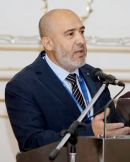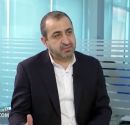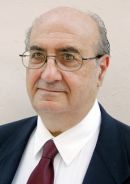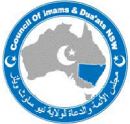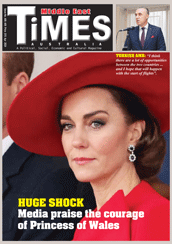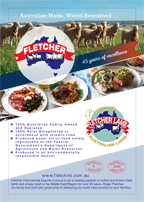| Cover |
| INTERVIEW WITH - The Hon Andrew Robb, Minister for Trade and Investment |
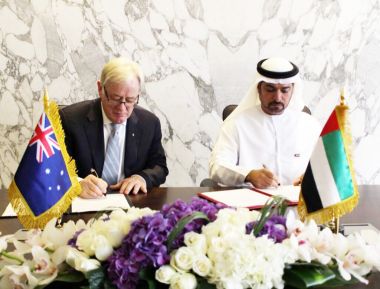 |
INTERVIEW WITH The Hon Andrew Robb, Minister for Trade and Investment In an interview with Middle East Times, Trade and Investment Minister Andrew Robb talks about his recent visit to the United Arab Emirates to sign a nuclear co-operation agreement for the export of Australian uranium. He also talks about Australian agribusiness prospects in the region and about what the government is doing to help Australian private exporters to the region. With tourism also added to his portfolio, Mr Robb also talks about the economic importance of that sector to the Australian economy, and touches upon travel arrangements. Australia is known as a reliable supplier of uranium. It is anticipated that the UAE will seek to import some 800 tonnes of uranium annually in coming years and that they see Australia as a viable long-term source country. What checks and conditions would need to be complied with for Australia to be certain that those purchasing our uranium are doing so for responsible, non-nuclear use? I visited the United Arab Emirates in April and met with UAE Foreign Minister Sheikh Abdullah in Abu Dhabi to witness the entry into force of a Nuclear Co-operation Agreement between the UAE and Australia. This agreement opens up new uranium sales opportunities for Australia. This agreement has been secured because Australia is a reliable supplier of uranium, and the UAE is a responsible user of nuclear energy for civilian purposes and this will open up a new long-term market for Australian uranium producers. Australia will also co-operate in nuclear-related activities such as nuclear safeguards, security, safety, and nuclear science with the UAE. Australia exported 8391 tonnes of uranium in 2012-13, worth about $823 million and the potential to create a larger export market is considerable, and will add uranium as a key export to the UAE joining education, tourism and services. Would you agree that agricultural/food exports will remain Australia’s largest export to the Middle East region? What help can the Australian Government give to Australian agri-businesses eyeing a greater role in that region? There are over 350 Australian companies with registered operations in the Middle East, many in Dubai. But as we continue to pursue our ambitious trade agenda, our program of facilitating Australian companies with business matching opportunities in the MENA region, and the ongoing goodwill and co-operation between the Australian Government and GCC Governments, we will see more opportunity for Australian business in the region. Agribusiness is a sector that Australia has significant expertise in and there is great opportunity for agribusiness services to export that expertise across the MENA region. Australia has an existing agricultural export relationship with the UAE which is also growing particularly in terms of dairy and fruit exports. The growth of agribusiness is a merging of Australia’s already strong agricultural export relationship and our growing services and education exports that has the potential to be an area of specialty for Australia. What opportunities do you see for Middle Eastern investment here in Australia? Are there any particular areas which may benefit from such investment? Australia has a reputation in the Middle East for stable returns from long-term investment that has been demonstrated over the years through existing commercial relationships across several sectors. There are major opportunities to focus investment in priority areas, particularly in agriculture and food security, resources and energy, infrastructure and tourism infrastructure. The Coalition Government has been in office eight months and we are sending the signal to the world that we are open for business and actively seeking foreign investment. We have an existing strong investment relationship with many Middle Eastern countries and we are looking to build on those links further to position Australia – the North of Australia in particular - for agricultural development to provide food security to countries in the MENA region, and Asia. Continuing to focus on your recent ministerial visit, how likely is it that we may be able to have tariffs significantly reduced on our meat, dairy and grain products? Can you provide an update as to progress on a free trade agreement between the GCC and Australia? In 2013 alone, Australia’s agricultural exports to the Middle East were $4.25 billion, accounting for 10.7 per cent of Australia’s total agriculture exports so the importance of the market for Australia is significant. Tariffs are part of any Free Trade Agreement that would be discussed in the future, and there is good will on both sides to process those discussions soon. Given the current volatility in the Middle East region (i.e. the Syrian conflict), how concerned are you that these events may affect Australian trade and investment interests? The Middle East is an incredibly diverse region and we have very strong investment, tourism, trade and services relationships with many countries across the MENA region. Like all governments, we assess risks and how those risks may affect our interests. Food and agricultural products already make up a big part of the $12 billion two way trade between the UAE and Saudi Arabia. Can you identify the most likely sectors for increased trade? The Coalition Government is committed to furthering opportunities in the MENA region for Australian businesses. We are committed to “backing our economic strengths” and that includes agribusiness, education, tourism, mining and resources and their associated services and technology, and services such as banking, legal, engineering and built environment. You recently talked about the strength of Australian tourism. Do you see potential to grow inbound visitor arrivals from the Middle East? What can be done to achieve this? As the minister responsible for tourism, I have announced tourism as one of five national investment priorities. It is also the first time in an Australian Government that tourism has an economic portfolio; it is now part of trade and investment. That is a demonstration of the strength of tourism to deliver economic benefit, and to be a catalyst for foreign investment and infrastructure investment. Tourism Australia estimates the market will be worth over $1 billion by 2020. To facilitate this, we have set up promotion agreements with both Etihad and Emirates Airways. We also have air services arrangements with Bahrain, Oman, Saudi Arabia, Yemen, Jordan and Kuwait. We have also made it even easier for GCC nationals to travel to Australia through on-line visas for GCC nationals, providing multiple-entry for three month stays that are valid for two years and have a shorter approval time than what was previously in place. Dubai will host the World Trade Expo in 2020. Does Australia intend to bid for the hosting rights at some point in the future? Do you see any benefits for this country in hosting such an event? Australia warmly congratulates Dubai on winning the right to host World Expo 2020, the first ever Expo hold in the Middle East and the Arab world and we supported Dubai’s bid. It will showcase the UAE to the world and have multiple benefits for the UAE and its trading partner nations, including Australia, as we participate in the event. As a government, Australia has not made any decision to host an international expo anytime in the future. |
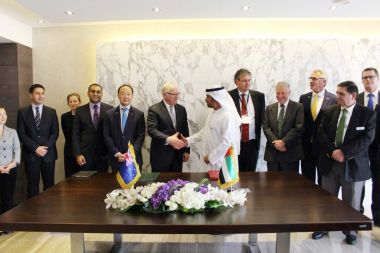 |
- Kuwait’s emir embarks on landmark visit to Iran
- Pope Hails ‘Courage’ of Israeli, Palestinian Presidents
- Growing with the business means another addition to the family



